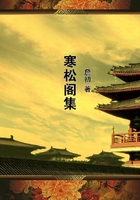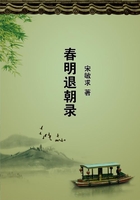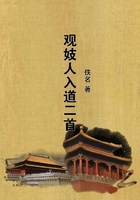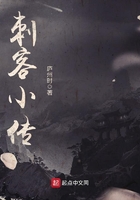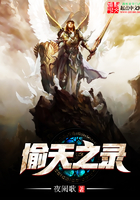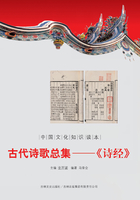Mr. Disraeli affords a similar instance of the power of industry and application in working out an eminent public career. His first achievements were, like Bulwer's, in literature; and he reached success only through a succession of failures. His 'Wondrous Tale of Alroy' and 'Revolutionary Epic' were laughed at, and regarded as indications of literary lunacy. But he worked on in other directions, and his 'Coningsby,' 'Sybil,' and 'Tancred,' proved the sterling stuff of which he was made. As an orator too, his first appearance in the House of Commons was a failure. It was spoken of as "more screaming than an Adelphi farce." Though composed in a grand and ambitious strain, every sentence was hailed with "loud laughter." 'Hamlet' played as a comedy were nothing to it. But he concluded with a sentence which embodied a prophecy. Writhing under the laughter with which his studied eloquence had been received, he exclaimed, "I have begun several times many things, and have succeeded in them at last. I shall sit down now, but the time will come when you will hear me." The time did come; and how Disraeli succeeded in at length commanding the attention of the first assembly of gentlemen in the world, affords a striking illustration of what energy and determination will do; for Disraeli earned his position by dint of patient industry. He did not, as many young men do, having once failed, retire dejected, to mope and whine in a corner, but diligently set himself to work. He carefully unlearnt his faults, studied the character of his audience, practised sedulously the art of speech, and industriously filled his mind with the elements of parliamentary knowledge. He worked patiently for success; and it came, but slowly: then the House laughed with him, instead of at him. The recollection of his early failure was effaced, and by general consent he was at length admitted to be one of the most finished and effective of parliamentary speakers.
Although much may be accomplished by means of individual industry and energy, as these and other instances set forth in the following pages serve to illustrate, it must at the same time be acknowledged that the help which we derive from others in the journey of life is of very great importance. The poet Wordsworth has well said that "these two things, contradictory though they may seem, must go together - manly dependence and manly independence, manly reliance and manly self-reliance." From infancy to old age, all are more or less indebted to others for nurture and culture; and the best and strongest are usually found the readiest to acknowledge such help.
Take, for example, the career of the late Alexis de Tocqueville, a man doubly well-born, for his father was a distinguished peer of France, and his mother a grand-daughter of Malesherbes. Through powerful family influence, he was appointed Judge Auditor at Versailles when only twenty-one; but probably feeling that he had not fairly won the position by merit, he determined to give it up and owe his future advancement in life to himself alone. "Afoolish resolution," some will say; but De Tocqueville bravely acted it out. He resigned his appointment, and made arrangements to leave France for the purpose of travelling through the United States, the results of which were published in his great book on 'Democracy in America.' His friend and travelling companion, Gustave de Beaumont, has described his indefatigable industry during this journey. "His nature," he says, "was wholly averse to idleness, and whether he was travelling or resting, his mind was always at work. . . . With Alexis, the most agreeable conversation was that which was the most useful. The worst day was the lost day, or the day ill spent; the least loss of time annoyed him."Tocqueville himself wrote to a friend - "There is no time of life at which one can wholly cease from action, for effort without one's self, and still more effort within, is equally necessary, if not more so, when we grow old, as it is in youth. I compare man in this world to a traveller journeying without ceasing towards a colder and colder region; the higher he goes, the faster he ought to walk. The great malady of the soul is cold. And in resisting this formidable evil, one needs not only to be sustained by the action of a mind employed, but also by contact with one's fellows in the business of life." Notwithstanding de Tocqueville's decided views as to the necessity of exercising individual energy and self-dependence, no one could be more ready than he was to recognise the value of that help and support for which all men are indebted to others in a greater or less degree. Thus, he often acknowledged, with gratitude, his obligations to his friends De Kergorlay and Stofells, - to the former for intellectual assistance, and to the latter for moral support and sympathy. To De Kergorlay he wrote - "Thine is the only soul in which I have confidence, and whose influence exercises a genuine effect upon my own. Many others have influence upon the details of my actions, but no one has so much influence as thou on the origination of fundamental ideas, and of those principles which are the rule of conduct." De Tocqueville was not less ready to confess the great obligations which he owed to his wife, Marie, for the preservation of that temper and frame of mind which enabled him to prosecute his studies with success. He believed that a noble-minded woman insensibly elevated the character of her husband, while one of a grovelling nature as certainly tended to degrade it.In fine, human character is moulded by a thousand subtle influences; by example and precept; by life and literature; by friends and neighbours; by the world we live in as well as by the spirits of our forefathers, whose legacy of good words and deeds we inherit. But great, unquestionably, though these influences are acknowledged to be, it is nevertheless equally clear that men must necessarily be the active agents of their own well-being and well-doing; and that, however much the wise and the good may owe to others, they themselves must in the very nature of things be their own best helpers.

